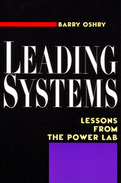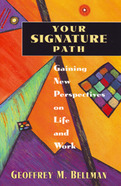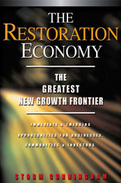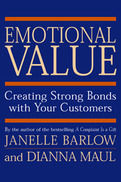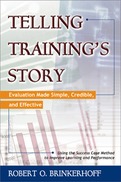2004
For over thirty years, Barry Oshry has uncovered core truths about how we operate in large organizations through the Power Lab, an experiential program that has been called "The World Series of Leadership Development Activities." In Leading Systems, Oshry reveals the lessons he has derived from his Power Lab experiences-experiences that have been central to his innovative insights about human systems and system leadership.
Oshry maintains that the next evolutionary challenge for human beings is to recognize ourselves as system creatures, see how system processes shape our experiences, and develop the knowledge and skills to master these processes rather than be victims of them. Drawing on his Power Lab experiences, he reveals the possibilities of systems leadership and how effective leadership can provide the basis for creating sane, healthy, effective social systems.
Challenging conventional thinking, Oshry shows the limitations of consensus, the importance of unilateral action, and the restrictions that our values-such as egalitarianism, liberalism, conservatism-can place on power. He reveals how the problems we often believe are personal or peculiar to our system or circumstances are in fact systemic, limiting the possibilities of both individuals and the system as a whole-and he demonstrates what it takes to break out and elevate ourselves and our systems to higher levels of possibility.
Perhaps most importantly, Oshry shares his experience in discovering what he calls "exhilarating concepts," and shows how these concepts offer unusual insights into the nature of systems, shedding light on everything from organizational dysfunction to the conflicts that occur along lines of race, gender, sexual orientation, and ethnicity. It is only through this deep knowledge, Oshry says, that system leaders can elevate their systems to those higher levels of possibility to which we aspire.
Offering new directions, Leading Systems is essential reading for anyone who wants a deep understanding of how systems work and how to exert enlightened leadership.
- Accessible, full of real-life examples, and beautifully written by a pioneer in systems thinking
- A systems framework based not on hopes and dreams but on thirty years of research on what systems really are
- Speaks to leadership in the family, community, organization, and nation
1996
Simply by living, each of us makes a path on the earth. Whether we blaze new trails or walk worn roads, all the things we touch and do leave an impression as unique and individualized as a signature.
Your Signature Path begins with the assumption that each of our paths makes a difference in the world and that each of us cares about the kind of difference we make. Written by a consultant to business who is familiar with the dilemmas inherent in the world of work, it is a book for individuals who are struggling with, celebrating, defining, or reconsidering their life's direction in the midst of great changes in the workplace, society, and the family. It offers these seekers thought-provoking insights and practical tools for evaluating who they are, what they are doing, and where they want their path to lead.
Focusing on three elements-Your Self, Your World, and Your Path-Bellman guides you in assessing your attributes, understanding your roles in the organizations and communities you interact with, and acting with purpose and clarity. Bellman shows that you have the power to define your own path. Through probing text and numerous practical exercises, he will help you:
- See yourself and your life path in a new light
- Understand why you do what you do
- Shape the many roles you play in the world, and find the deeper meaning inherent in those roles
- Honestly examine your passion (or lack of) for your work
- Reach for work goals that are life-fulfilling, and more
Bellman offers a fresh, empowering vision of the individual's place in the world; he explores ways which help your life and work make a positive difference. He illuminates the integral role of work in a fulfilling life, and shows how to align your work with the life path you have chosen.
Written for people who reflect and act upon what their lives are about, who intend to have a hand in their own destiny, who aspire to become their better selves; Your Signature Path offers guidance for life's most important challenge: Creating yourself while contributing to the world.
- Offers a fresh, empowering vision of the individual's place in the world
- Strengthens the reader's ability to see, understand, and shape the path they are on
- Shows that the way an individual lives and works can make a positive difference in the world
- Illuminates the integral role of work in a fulfilling life
- Features practical exercises for re-imagining the relationship between self, work, and community
- The first book to reveal the "hidden" trillion-dollar-plus industry that is revitalizing our manmade and natural environments
- Written for a broad range of readers, including businesspeople, investors, and numerous other professional, community, and government groups
- Describes the explosive growth in restoration activity in eight different areas
2003
• Establishes that investing in common stock or equity mutual funds is riskier than ever and that traditional methods used by investment professionals to control this risk do not provide adequate protection against loss.
• Shows that the real winners in the stock market are the executives, corporations and the brokerage industry. The potential rewards are so enticing that the behavior of these "beneficiaries" of market advances can range from unethical transgressions to outright fraud.
• Presents a logical and common sense strategy for safeguarding investments in the market against loss in bad times while providing for participation in the gains when times are good. These attractive investment options are rarely discussed in mainstream financial literature. They are described in detail and offer a smarter and safer course for the more than 40% of households that own some form of common stock.
2000
-
From the coauthor of the bestselling A Complaint Is a Gift
-
Offers customer service managers and supervisors dozens of proven ideas, innovative options, and powerful examples of organizations that systematically add emotional value to their customers' experience
Based on careful analysis of participants' first-person accounts of their experiences in a training initiative, SCM doesn't just measure the impact of training, but pinpoints the very factors that make or break training success. Filled with examples, illustrations, tools, and checklists, Telling Training's Story not only shares the power of the Success Case Method to evaluate training, it also offers practical step-by-step guidelines for increasing the ROI of future learning and performance initiatives.
• Offers a simple, straightforward yet robust and convincing method for demonstrating the effectiveness of training
• A detailed how-to manual, filled with tools, examples, checklists, and step-by-step advice
What all trainers know in their gut--that training and development is valuable and worthwhile--is something that needs to be proven over and over to clients focused on bottom-line results. As a result, there have been many books and articles about evaluating training, but most of the methods they describe are too elaborate, too complex, too costly, too difficult to explain--or worse, produce data nobody believes.
In Telling Training's Story, Story Robert Brinkerhoff offers a simple, compelling way of evaluating training's impact: The Success Case Method (SCM). Based on careful analysis of participants' first-person accounts of their experiences in a training initiative, SCM has been proven robust enough to withstand scrutiny from both a research and a business perspective, and will not choke real world practitioners and their clients with cumbersome methods and arcane statistical gyrations. And SCM does not just measure and document the impact of training, it uncovers and pinpoints the factors that make or break training success. Armed with this information, training leaders and their clients can dramatically increase the ROI of future learning and performance initiatives.
Filled with examples, illustrations, tools, and checklists, Telling Training’s Story not only shares the power of the Success Case Method to evaluate training, it also offers practical step-by-step guidelines for creating SCM projects and ensuring meaningful results.


